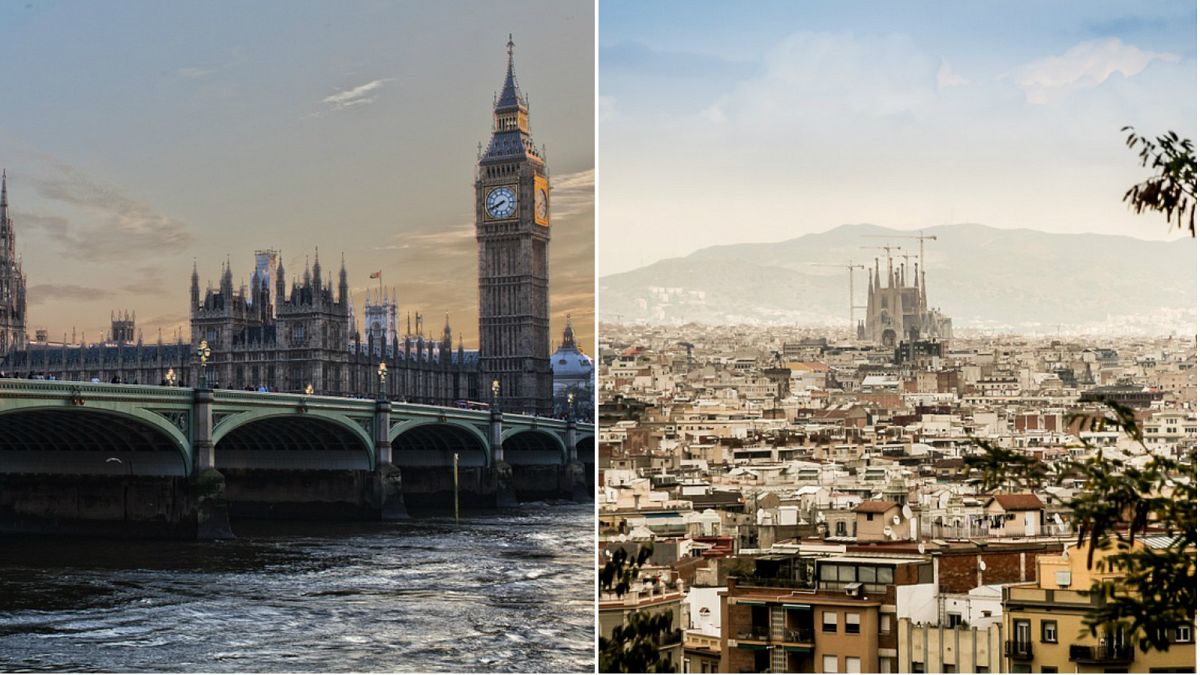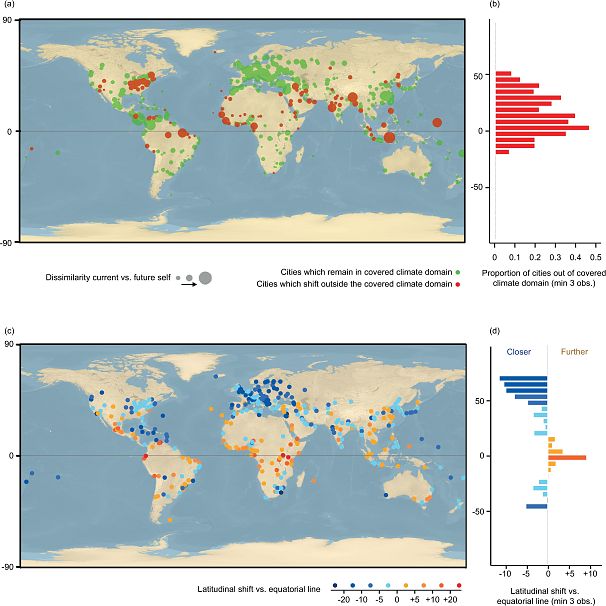Scientists have analysed pairs of 520 major cities around the world and tested to see what their climate in 2050 would look like.
London's climate could be as hot as Barcelona's in 2050 and Paris's climate could feel like Canberra, researchers said in a new study which found that 77% of the world's major cities will experience a shift in climate and resemble another city.
Scientists from the Swiss Federal Institute of Technology, ETH Zurich, compared climate information for 520 major cities to understand the future impact of climate change by pairing current cities to their future climates.
They represented the research visually as a project of the university's climate-focused Crowther Lab and used an optimistic climate scenario from the Intergovernmental Panel on Climate Change.
"By using this optimistic climate change scenario, we represent conservative changes in climate conditions that are likely to occur even if substantial climate change mitigation occurs," the researchers wrote in the study.
The researchers also found that 22% of the world's cities will have a climate not currently felt in any major cities. Cities that will experience this "novel climate" include Kuala Lumpur, Jakarta, and Singapore.
Cities in the northern hemisphere will shift to warmer temperatures, the study found and will resemble climates of cities located roughly 1000 kilometres south of the current cities.
"Across Europe, both summers and winters will get warmer, with average increases of 3.5°C and 4.7°C, respectively," the authors wrote in the study.
Cities in tropical regions will have smaller temperature changes but will experience more rainfall and more severe droughts.
"It is hard for most people to envision how an additional 2°C of warming might affect daily life," the researchers said in the study.
"This ineffective communication of climate change facts, compounded by uncertainty about the extent of expected changes, has left the door open for widespread misinterpretation about the existence of this global phenomenon."

